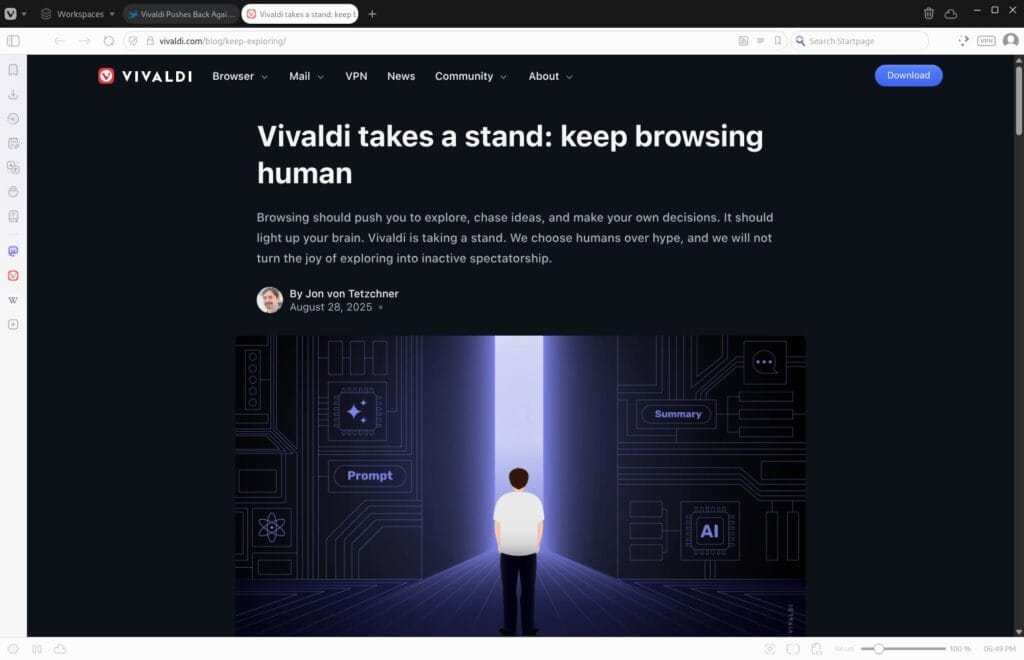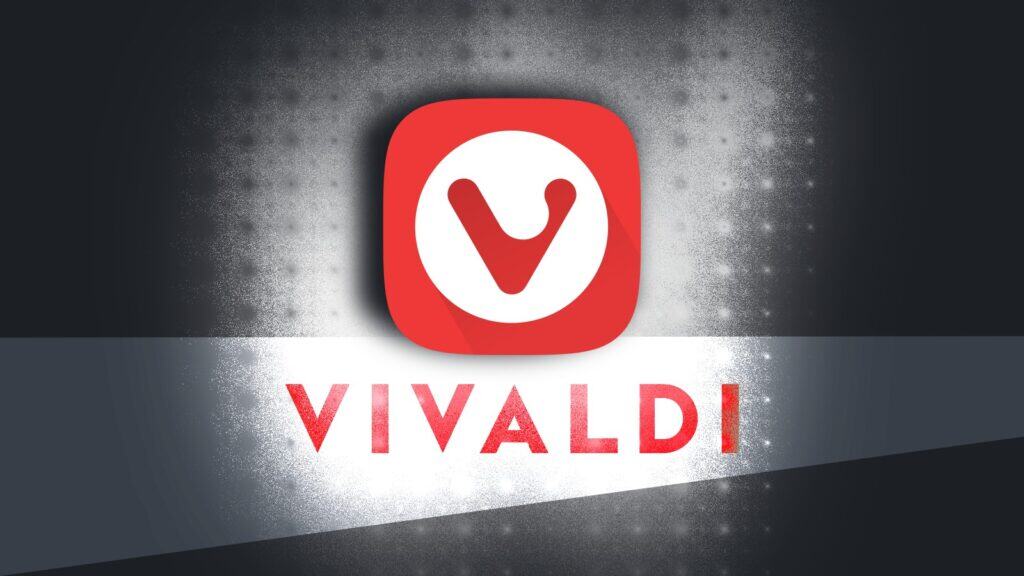Just a couple of years ago, AI seemed like something experimental and exotic. Now it’s the biggest trend in tech, with companies racing to pack more and more AI features into their software. Whether people actually need all of this, though, is another question entirely.
While big names in the browser niche, such as Google Chrome, Microsoft Edge, and even Mozilla Firefox, are putting AI front and center in their browsers, Vivaldi has taken a completely opposite approach.
In a statement published today, Vivaldi co-founder and CEO Jon von Tetzchner made it clear that the browser will not follow the trend of embedding large language models to scan, summarize, or pre-navigate the web on behalf of users.
We’re taking a stand, choosing humans over hype, and we will not turn the joy of exploring into inactive spectatorship.
As already mentioned, the direction across the industry looks very different. Google is pushing Gemini deeper into Chrome, promising automatic page summaries and even future features that can navigate sites and tabs for users.
At the same time, Microsoft is going all-in on Edge as an “AI browser,” offering screen analysis and predictive actions. These approaches are shifting the traditional address bar into an AI assistant prompt.
But that shift comes with consequences. Independent studies have shown that when AI-generated summaries appear, people are less likely to click through to the original sources. For example, Pew Research Center recently found that users clicked traditional results only about half as frequently when summaries were displayed.
Vivaldi’s SEO emphasized that while machine learning itself can be beneficial, the current wave of AI integrations risks introducing misinformation, undermining creators, and turning people into passive spectators.
We will not use an LLM to add a chatbot, a summarization solution, or a suggestion engine to fill up forms for you, until more rigorous ways to do those things are available. We will not turn exploration into passive consumption.
Open-source users—and Linux enthusiasts in particular—have always been particularly sensitive when it comes to issues like privacy and AI features that take control out of their hands.

Meanwhile, Vivaldi is available on nearly every Linux distro, yet it often gets overshadowed by Firefox. But lately, though, Firefox hasn’t exactly done itself any favors. Shutting down some of its most popular services, tweaking its licensing in ways that give advertisers more room, and leaning into AI features have all eroded its once-strong reputation in these communities.
Maybe, just maybe, now’s the right time for Linux users to give Vivaldi another look—a browser built with privacy at its core, packing an unmatched level of customization, and still fighting for a better web.

Looks like my favorite browser at the moment won’t provide that crap as well:
>> LibreWolf by default gets rid of anything that seeks to abuse your right to privacy, you won’t even find Google or Bing in your search engine. Naturally this will also apply to AI providers. Unfortunately, at the moment, we can’t trust Mozilla and by extension with AI items so these things were removed. That doesn’t mean you can’t install third party AI extensions.
https://codeberg.org/librewolf/issues/issues/1919
+1 to Jon von Tetzchner for his A.I. stance to keep humanity at par.